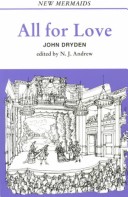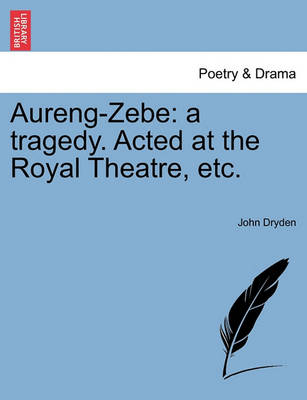Regents Restoration Drama
3 total works
Although John Dryden the poet is best known for his alexandrine epics, John Dryden the playwright is most honored for this blank verse tragedy. The summit of Dryden's dramatic art, All for Love (1677) is a spectacle of passion as felt, feared, and disputed in the suspicious years following the English Civil War.
Due to its dramatic compression and elegance, All for Love is one of the most enduring plays of the Restoration repertory. It was so successful that in the eighteenth century Dryden's tragedy drove Shakespeare's Antony and Cleopatra from the stage.
The play depicts the catastrophic passion of Cleopatra and Marc Antony, who could not be conquered but by love. Fidelity to family and friends, adherence to codes of honor, national loyalties, and the rule of law compete with each other, tearing the world with violence.
Like Dryden's best tragicomedies, Marriage a la Mode has a double plot. The hopes that marriage excites and the regrets it suffers, the possibilities it opens and the opportunities it denies, its potential nobility and its vulnerability to decay provided Dryden with plentiful dramatic material. Comedy and pathos intersect in plots that entangle and surprise like marriage itself.
Aureng-Zebe was John Dryden's last rhymed play and it is frequently considered his best. In this tragedy, produced in 1675, published in 1676, the plot is loosely based on a contemporary account of the struggle between the four sons of Shah Jahan, the fifth Mogul emperor, for the succession to the throne. The hero is a figure of exemplary rationality, virtue, and patience whose stepmother lusts after him and whose father pursues the woman with whom Aureng-Zebe is himself in love. Dryden evinces a deeply disturbing awareness of the anarchy and impotence which threaten every aspect of human life, emotional, moral, and political.


